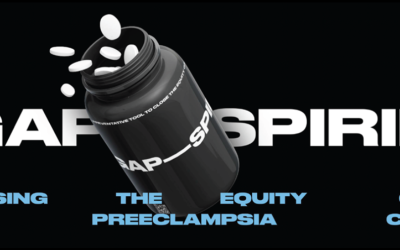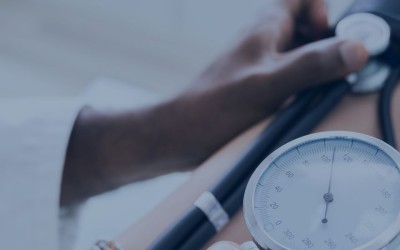
About The Cuff Kit®
Making self-monitored blood pressure accessible for all pregnant and postpartum moms
High blood pressure (hypertension) during pregnancy and right after delivery is one of the leading causes of mothers dying or getting very ill. Monitoring blood pressure is therefore an essential part of prenatal and postpartum care. Masked hypertension, where blood pressure levels are elevated at home despite normal blood pressure in a clinical setting, may lead to cardiovascular and obstetric complications. Sudden rises in blood pressure can threaten pregnant women between prenatal appointments or if they have limited access to healthcare.
Access to blood pressure measurement devices, economic hardship, or limited knowledge should not be barriers to home-based monitoring. Early detection of high blood pressure in pregnancy may improve outcomes. Every woman should be able to check her own blood pressure at home.
The Cuff Kit® Project creates solutions to this problem and raises awareness of the importance of self-monitored blood pressure. Our initial response was the Cuff Kit®, a package of care for high-risk mothers which includes automatic blood pressure monitors and a variety of educational tools that explain how and why to take your blood pressure, what the numbers mean, and when to seek help. Read our announcement about the Cuff Kit® here.
We’re staying in touch with the healthcare providers giving Cuff Kits® to their patients to ensure we are meeting the needs of our community. And we’re working with researchers, clinicians and payers to carefully consider deploying this solution for all pregnant and postpartum women.
Our approach includes:
- Partnering with healthcare providers to offer the Cuff Kit® to their patients as part of a telehealth solution
- Offering the Cuff Kit® to women in need directly from the Preeclampsia Foundation
- Data collection and analysis to demonstrate efficacy of this innovative solution
- Advocating for insurance companies to cover devices for pregnant and postpartum women
- Evaluating self-monitored blood pressure to augment existing best practices for prenatal and postpartum care
- Staying abreast of innovations in remote BP monitoring and, as appropriate, advocating for uptake of more efficient, accurate, and cost-effective solutions.
Each Cuff Kit® includes:
- A pregnancy-validated automatic blood pressure monitoring device with batteries
- Instructions sheet with access to online video
- Paper blood pressure tracking log
- Signs and symptoms of preeclampsia sheet
- Signs and symptoms of postpartum preeclampsia education sheet
- Signs and symptoms magnet
- “Still at Risk” rubber bracelet
- Patient feedback link
Would you like to learn more about how to self-monitor your own blood pressure? Are you a provider interested in offering the Cuff Kit® to your patients? Want to donate to provide Cuff Kit® to deserving facilities? to Please visit one of the pages below.
For Women For Providers Donate to Provide A Cuff Kit®
It is our collective voice that reduces isolation for others, raises awareness and improves healthcare practices. Let's raise up our voices so more women know about preeclampsia and HELLP syndrome and less women have adverse outcomes!
Related Articles

Nurses play a vital role in detecting preeclampsia and caring for patient before, during, and beyond pregnancy.

A key component needed in the fight against preeclampsia is the development of tests for simple, rapid, and accurate diagnosis and prediction through the development and adoption of biomarkers.

As a first step to address the need for self-monitored blood pressure, the Preeclampsia Foundation started providing the Cuff Kit® in June 2020 to women at highest risk of developing preeclampsia and...

Order our Ask About Aspirin Rack Card. Aspirin can prevent the formation of blood clots. This can make aspirin useful in treating or preventing some conditions like heart attacks and st...

Women who have had preeclampsia have three to four times the risk of high blood pressure and double the risk for heart disease and stroke: ensure they get follow-up care beyond pregnancy.

For more on the Preeclampsia Foundation's work to amplify all research related to biomarkers for improved prediction and diagnostic tools, please visit https://preeclampsia.org/biomarkers. INDIANAPOL...

GAP—SPIRIN campaign gets low-dose aspirin to those most at risk to help close the maternal health gap in preeclampsia ________ NEW YORK, January 23, 2025/PRNewswire/ – In recognition of...
1732072344.png)
While the Preeclampsia Foundation has been championing patient advocacy and representation for all families affected by hypertension in pregnancy throughout our 25 year history, we recognized the uniq...

Washington, DC – April 11, 2024 – On April 10, one day before the start of Black Maternal Health Week, the Preeclampsia Foundation in partnership with Thermo Fisher Diagnostics held a Hill...

Recently, I came across a social media post calling attention to the global maternal health crisis from a Black woman’s perspective. Someone responded to the post asking, “What’s rac...



